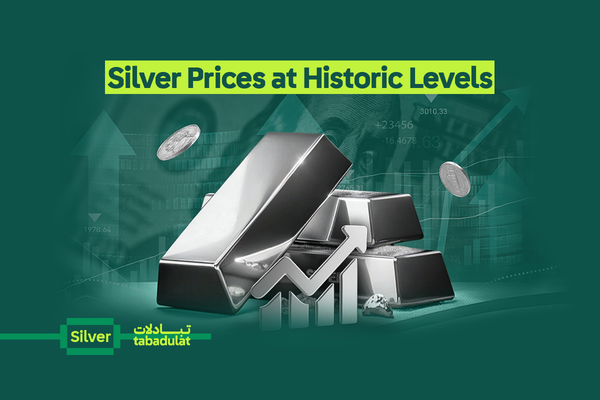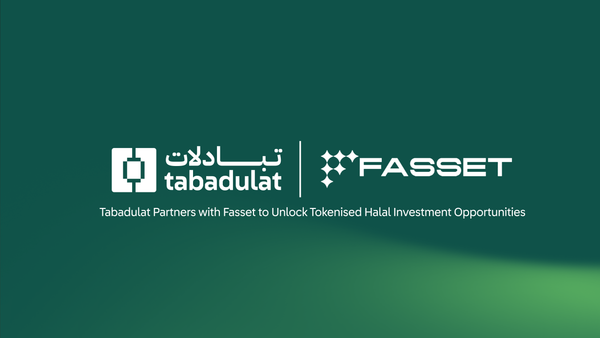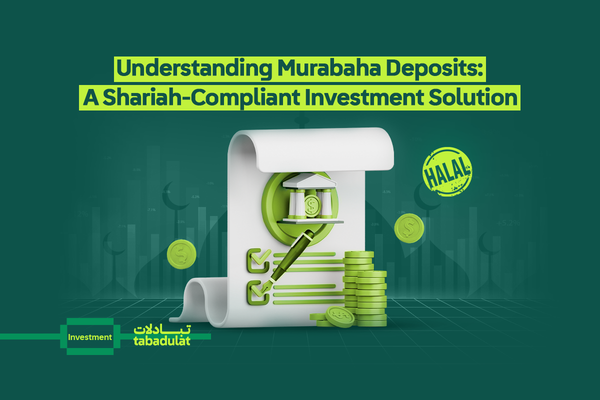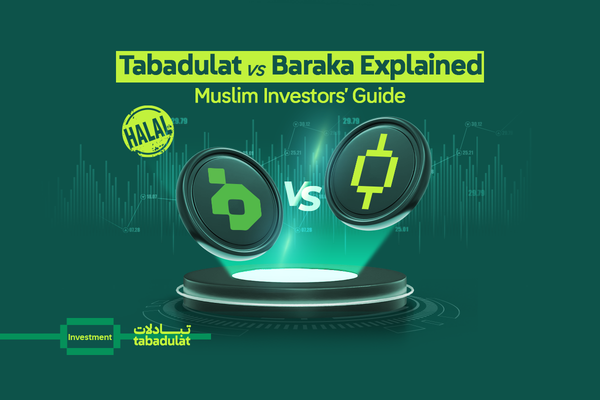Halal Investing for Retirement. How to Ensure it's Compliant
Planning for retirement as a Muslim means more than saving money. It means ensuring your portfolio is halal. Learn how to build a Shariah-compliant retirement plan with halal stocks, sukuk, REITs, and gold while maintaining growth, stability, and peace of mind.

Imagine reaching your last working day: you close your desk, say goodbye to your colleagues, and walk out knowing a new chapter is beginning. A stage where there’s no monthly paycheck, but peace of mind is still expected.
For the Muslim investor, this stage is not just about the money in the bank, but the reassurance that every dollar earned was in full compliance with Shariah principles, free from riba (interest), gharar (excessive uncertainty), and prohibited industries.
It’s the balance everyone is looking for: financial security that ensures a dignified life, and religious commitment that keeps the conscience clear. Proper halal retirement planning means living those years without financial worries and without religious doubts.
If this is your first time considering this path, start here: What is Halal Investing?, your guide to understanding the principles and Shariah screening standards.
Why Retirement Planning is Important in Halal Investing
Retirement means living for many years without a monthly salary, and in today’s economic climate, the challenge has become even greater.
Longer Retirement Years Globally
UN projections indicate that global average life expectancy will reach 77 years by 2050, meaning that someone retiring at 60 may need a stable income for 20–25 years.
Inflation Eats Away at Your Savings
In many OIC countries, inflation averages between 5–8% annually, reducing the purchasing power of savings over time if investments do not grow at a faster pace.
Pension Gaps
Government or workplace pensions often don’t cover all expenses. In some countries, pensions do not exceed 50% of the last salary before retirement.
Shariah Considerations
For Muslim investors, the challenge is doubled, providing enough retirement income while avoiding any investment that is not Shariah-compliant, such as conventional bonds, interest-bearing bank accounts, or companies generating revenue from prohibited activities.
Key Considerations for Building a Long-Term Halal Portfolio
- Determining the Investment Time Horizon
- The investment time horizon is the period during which an investor can withstand market fluctuations before starting to withdraw funds from their portfolio.
Between the ages of 20 and 35, the horizon is long, and the ability to take on risk is higher, making it preferable to allocate a larger portion to halal stocks and Islamic index funds.
From 35 to 50, it’s better to strike a balance between growth and income through a mix of stocks, sukuk, and halal REITs.
After the age of 50, the priority shifts to capital preservation and maintaining a stable income, with a greater focus on sukuk, halal REITs, and gold.
- Understanding Risk Tolerance
- If market fluctuations don’t bother you and you see every dip as a buying opportunity, you are likely a high-risk-tolerant investor, inclined to invest more in halal equities and Islamic ETFs for faster long-term growth. If you only sleep peacefully knowing your money is in safe assets, you are closer to low risk tolerance, focusing on sukuk and stable assets that provide fixed income with less volatility.
Pro tip: Don’t rely on your gut feeling alone. Use risk assessment tools provided by halal investment platforms, such as Tabadulat, to determine your level precisely and build your portfolio accordingly.
- Smart Diversification Across Halal Assets
- Smart diversification across halal assets is a core strategy for protecting your portfolio from market volatility, as spreading investments across multiple assets helps limit the effect of a downturn in any one of them on overall performance.
For example, combining halal stocks, sukuk, REITs, and gold can create a balance between growth-oriented assets that offer expansion opportunities and stable assets that provide regular income.
This mix results in a more stable portfolio that is less exposed to sudden risks, giving the investor greater peace of mind over the long term.
- Using Screening & Monitoring Tools
- Don’t rely on a one-time check. Companies and funds may change their Shariah compliance status when launching new products or altering their financing structure.
Use platforms like Tabadulat to monitor your assets’ compliance in real-time, receive instant alerts about any changes, and see the percentage of non-permissible income with instructions for purification.
Global Halal Investment Options for Retirement
Shariah-Compliant Exchange-Traded Funds (ETFs)
Instant diversification at low cost.
Example: iShares MSCI World Islamic UCITS ETF provides exposure to global companies after thorough Shariah screening.
Sukuk (Islamic Bonds)
Provide a fixed income with less volatility than stocks.
Example: Malaysia’s sovereign sukuk market is one of the largest globally, attracting investors from various faiths thanks to its stability.
Gold (Bullion or Halal Gold Funds)
A hedge against inflation, retaining value during crises.
Example: After the 2008 financial crisis, gold prices rose by more than 25%, helping protect portfolios.
Halal REITs (Islamic Real Estate Investment Trusts)
Real estate income without the need for direct management.
Example: Emirates REIT in Dubai generates returns from Shariah-compliant commercial properties.
Halal Mutual Funds
Professional management and ongoing Shariah screening.
Example: Amana Mutual Funds Trust in the US is popular among Muslim retirees.
Common Mistakes to Avoid
Relying on a Single Asset
Putting most of your money into one asset, such as gold or real estate, exposes your portfolio to higher risk. The solution is diversification across multiple halal assets like sukuk, stocks, gold, and halal REITs.
Neglecting Portfolio Rebalancing
Over time, the value of certain assets may rise or fall, changing your risk profile. Rebalancing means selling part of the assets that have increased and buying those that have decreased to maintain your target allocation.
Ignoring Inflation
Inflation reduces your purchasing power. If inflation is 6% annually, in 10 years you’ll need almost double the current amount to buy the same goods and services. Choose assets that grow faster than inflation.
Neglecting Zakat and Purification
Halal portfolios require regular monitoring to ensure no non-compliant income has entered unintentionally. If it does, it should be purified by donating the prohibited portion to charity.
Practical Steps to Build a Halal Retirement Plan
Step 1: Define Your Retirement Goal in Numbers
Calculate your expected annual expenses after retirement × number of years you expect to live post-retirement.
Example: If you need $50,000 annually for 20 years, you need at least $1,000,000.
Step 2: Choose the Right Asset Allocation
Allocate between growth assets (halal stocks, ETFs), income assets (sukuk, halal REITs), and inflation hedges (gold), according to your age and risk tolerance.
Step 3: Invest Regularly
Use the Dollar-Cost Averaging (DCA) method by investing fixed amounts monthly or quarterly.
Step 4: Rebalance Annually
Review your portfolio at least once a year. If stocks have risen above your target allocation, sell part of them and reallocate to other assets.
Step 5: Monitor Shariah Compliance
Review your portfolio’s compliance every quarter using halal screening tools. If any asset becomes non-compliant, replace or sell it.
FAQs
Is investing in retirement halal?
Yes, it is, provided the investment options are Sharia-compliant. This means the retirement fund must be invested in halal assets, avoiding interest (riba), and industries like gambling, alcohol, or weapons.
What investments are halal in Islam?
Halal investments must be Sharia-compliant, avoiding interest, gambling, and excessive uncertainty. Examples include halal stocks, sukuk (Islamic bonds), sharia-compliant ETFs and mutual funds, real estate, and some commodities like gold, provided they meet ethical and financial screening criteria.
Which trading is completely halal?
Halal trading avoids interest (riba), excessive uncertainty (gharar), and prohibited industries like alcohol or gambling. This includes investing in Sharia-compliant stocks, sukuk, and halal ETFs, where ownership and profit-sharing are key.
Which mutual fund is halal in Islam?
Halal mutual funds are Sharia-compliant, meaning they avoid interest and prohibited sectors like alcohol, gambling, and conventional banking. Examples include the Amana Mutual Funds and the HSBC Islamic Global Equity Index Fund, which are screened by a board of scholars to ensure compliance.
Is there any halal ETF?
Yes, several halal ETFs. They are structured to comply with Sharia principles by screening out investments in prohibited industries (e.g., alcohol, gambling, conventional banking) and avoiding interest-based returns. A prominent example of halal ETFs is the Wahed FTSE USA Shariah ETF (HLAL).
Are ETFs better than stocks?
No single investment is inherently better; it depends on your goals. ETFs offer immediate diversification, lower risk, and less research. Stocks provide higher potential returns but come with more risk and require extensive research into individual companies.





